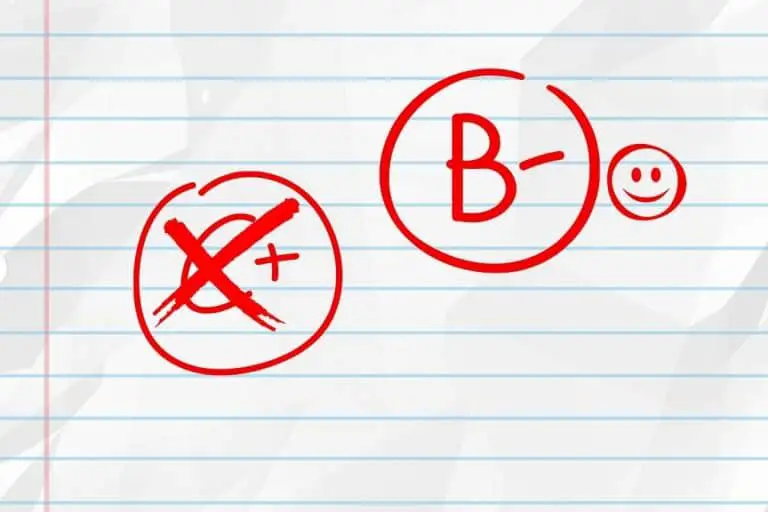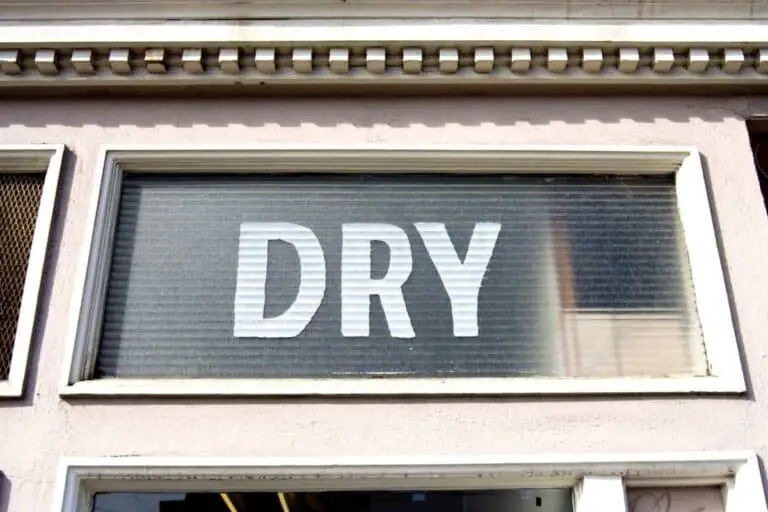Is Getting a College Minor Worth It? 8 Important Facts
Committing to a bachelor’s degree program is one of the most meaningful and important aspects of attending a four-year university, but it’s not the only decision you’ll need to make. Many students also find themselves wondering whether a college minor might be worth the additional effort.
Getting a college minor can be worth it. A college minor could increase future job opportunities, allow students to form a specialty, or study interesting subjects unrelated to their major. But a college minor can also increase tuition costs and time spent in school.
In this article, we’ll discuss eight crucial facts that can help you decide to either pursue a college minor or stay focused on your major.

1. A College Minor Could Boost Your Job Opportunities
One of the primary reasons many students choose to declare a minor is to bolster their major.
For example, students pursuing a major in computer engineering could choose a complementary minor program in mathematics, electrical engineering, or information technology.
Depending on your preferred career path, these minors could help you impress future employers after graduation, helping you land your dream job far more quickly.
Because more than 40 million students take on student loan debt during their schooling, being able to secure a high-paying and rewarding job soon after graduation is vital. Finding a job immediately after earning your degree could grant you priceless peace of mind and help you afford your initial loan repayments (source).
A minor could also help you jumpstart your career, helping you get ahead of fellow graduates that may also be applying to similar positions. This is crucial, especially when considering how many recent college graduates struggle to find a job, especially positions related to their degree.
For example, approximately 45% of college students that graduated in 2020 are unemployed. That’s nearly half of all graduates (source).
Consequently, making yourself an attractive candidate is crucial, especially when loan repayments kick in and it’s time to start paying for post-college housing, food, health insurance, and entertainment.
2. Minors Allow You To Form a Specialty
Most bachelor’s degree programs cover broad subjects.
For example, it’s common to find students majoring in mathematics, English literature, or business. And though some programs offer or encourage students to specialize in specific areas within the chosen subject, some don’t.
But taking on a minor could be the ideal way to form a specialty within your chosen major. So, if you’re an English literature major looking to focus on American literature published in the 1800s, a minor could be the perfect way to delve more deeply into that specialized subject.
This type of specialization not only helps you gain a wealth of knowledge related to your major but could also help differentiate you from other students. The differentiation could set you apart from other graduates when it comes time to apply for a job, helping you stand out as a worthwhile candidate.
But, of course, a college minor isn’t only a valuable tool for finding future employment or learning more about a specific aspect of your chosen field of study. A minor could also be an excellent outlet for your creativity and help you ignite passions for unrelated subjects.
3. You Could Get Creative With Your Minor
Getting a college minor doesn’t necessarily mean delving more deeply into your bachelor’s degree subject area. Instead, if you’re looking to vary your college experience and explore new topics and fields of study, you could also get a little creative with your minor.
This means that students pursuing a liberal arts degree could pursue a minor in sciences or technology. Or, conversely, students pursuing a STEM degree could choose a creative, artistic minor that features courses they’d otherwise never have the chance to experience.
As such, a minor could act as an academic break from your primary course of study, and provide unique opportunities to broaden your horizons and learn new things.
So, if you’re a Biology major who’s always wanted to learn more about philosophy, a minor in philosophy could be just the thing to make your college experience more rewarding and well-rounded.
Be sure to consider any interests you may have that aren’t related to your major degree program, and see if your school offers any minors in the subject. You may be pleasantly surprised to learn that a topic you’ve always wanted to learn more about is only a few credit hours of study away.
4. Declaring a Minor Could Broaden Your Linguistic Horizons
Many universities require undergraduate students to show proof that they’ve studied at least two years of a foreign language during high school. However, many high schools throughout the US offer a limited number of language options.
For example, some of the most common foreign languages offered in US public schools include:
- Spanish
- French
- Mandarin
- German
So, if you’ve ever wanted to learn and master a different language, like Japanese or Portuguese, you might not have the opportunity to do so until college. However, if your major isn’t related to language or focused on a particular foreign language, you might never have the opportunity to take courses that focus on these languages.
But declaring a minor in a language could be an excellent way to start learning a new language, especially one that was unavailable to you during middle school or high school. You could also choose a minor that focuses on cultural studies, helping you learn more about foreign cultures and societies.
The skills you gain from pursuing a foreign language or culture-based college minor could become indispensable as you enter the workforce. After all, many employers seek multilingual candidates that can comfortably communicate with international clients (source).
5. College Minor Can Bridge the Gap Into Graduate Schooling
Unlike bachelor’s degree programs, nearly all graduate degree programs include a specialty focus. A fantastic example of this would be the differences between a bachelor’s degree in finance and a master’s degree in finance.
Students who complete a bachelor’s degree in finance will likely study a wide range of related topics, including accounting, economics, calculus, and business administration.
However, graduate students pursuing a master’s degree in this field of study will likely need to choose a specialty, including:
- Accounting
- Business administration
- Financial management
Getting a head start on your graduate-level schooling is an excellent idea, especially if you’re looking to earn a postgraduate degree in the shortest possible amount of time. Additionally, university administrators and professors are often selective when admitting graduate-level students.
Having a college minor directly related to your planned graduate or postgraduate degree program can make you a more attractive prospective student, increasing your chances of gaining admission to the program of your choice.
Completing a minor that helps you specialize in a particular sub-field within your major program can also help prepare you for your future coursework. It may also help you make an informed decision about which graduate-level specification might be suitable for you.
So, if you’re unsure which specific area of focus you should pursue during your graduate studies, consider getting a minor before graduating with your bachelor’s degree. Doing so could ensure you make the best possible decision about which graduate program fits your interests, preferences, and career goals.
6. You May Have Less Time for Other Activities
Taking on a full-time course load can be challenging, especially if you’re working a part-time job or participating in extracurricular activities. On average, students pursuing a full course load will spend up to 20 hours inside the classroom and up to 36 hours per week completing coursework or studying (source).
This adds up to approximately 56 hours, which is more than two whole days, of dedicated study and course attendance each week. That’s one-third a week, including time spent sleeping, eating, or traveling to and from class.
Consequently, college students often struggle with time management.
Moreover, adding other responsibilities to this already heavy load can lead to higher stress and anxiety levels and lackluster or declining academic performance (source).
If you’re someone who constantly struggles with time management, declaring a minor could be disastrous. Declaring a minor can also significantly reduce the amount of free time you have to pursue other activities, including fun extracurricular activities, college sports, or student clubs.
Unless you’re prepared to handle this increase in academic responsibility, it might be best to stick with your major program and avoid declaring a minor.
It’s also worth noting that adding a minor can significantly increase tuition costs.
7. A College Minor Can Increase Tuition Costs
College tuition costs vary greatly depending on the type of school you’re attending, the degree program you’re pursuing, and whether you’re considered an in-state or out-of-state student.
For example, the average annual cost of attendance for in-state students attending public universities is about $25,000. This average increases to almost $54,000 for in-state private university students. These averages double for out-of-state students (source).
When you break these numbers down into credit hour costs, the average comes to about $450 for public institutions and approximately $1,000 for private universities (source).
Depending on your chosen minor and school, you could end up spending an additional $6,750 (15 credit hours at a public university) to $30,000 (30 credit hours at a private university) to earn your minor.
Low-income students attending school with the help of grants or scholarships may risk running out of funds before completing their schooling. Students taking out loans to earn their degrees can also increase their future financial burden by declaring a minor.
Unless you’re comfortable taking on additional debt or have the funds to afford an additional degree program, it might be best to avoid adding a minor to your education plan.
8. Getting a Minor Can Increase Schooling Duration
Most bachelor’s degrees require 120 completed credit hours. Full-time students taking 12 credit hours worth of courses each semester may earn their bachelor’s degree within ten semesters (source).
Students who enroll in fall, spring, and summer courses typically spend three and four years completing their bachelor’s degree program. But when you add a minor degree program, this estimated time range increases.
The number of credit hours required to earn a minor varies depending on the school and program. For example, the University of Florida offers a minor in anthropology that requires 15 to 16 credit hours in that field. Altogether, this equates to about two additional semesters (source).
Compare that to the University of Washington’s minor in anthropology program which requires students to earn 30 credit hours in the field, 15 of which include upper-level anthropology courses. This additional requirement adds about three semesters to your program timeline (source).
So, if you’re looking to finish your college education as quickly as possible, a college minor may only slow you down. And, as mentioned previously, this added schooling is also bound to increase the total expense of your higher education.
Final Thoughts
Getting a college minor could make it easier for graduates to secure jobs, especially highly specialized positions. They are also an excellent opportunity to diversify your education and study fields outside your major program.
However, declaring a minor can also limit your free time, decreasing your opportunities to participate in extracurricular activities and clubs. Adding a minor to your degree plan can also increase tuition costs and the amount of time it takes to earn your degree.
Be sure to consider these positive and negative aspects before declaring a minor.
Recommended Reading:







